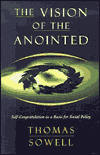Every party has an end, even a really good one
Each election year, we hear that the world of politics is becoming meaner and nastier. We hear that name-calling and political advertising have hit a new low. Well, I've heard it said before, and I completely agree: the election cycles of 2006 and especially that of 2008 will be the nastiest, most mean-spirited, and cut-throat elections our country has ever seen. The Democrats have no plan of their own. All they can do is try to tear down Republicans, and their attempts will be relentless.
We on the right, however, have had to come up with reasons we believe what we believe. We have had to construct logical arguments about why our beliefs are good for the country and why theirs are bad. It is with that impetus in mind that I ask all of you who think similarly to read an essay titled "The Endless Party", written by William Voegeli, Vice President of the Claremont Institute. Mr. Voegeli has presented the two sides of the discussion with exquisite clarity. My favorite passage:
The "no message" interpretation of the 2004 election claims that this gap has now closed, finally and completely: liberalism cannot become politically strong again until it stops being so theoretically weak. But Democrats need to recognize how far back, and how far down, liberalism's confusion goes. The notion that liberalism is fundamentally indecipherable was voiced frequently during the 1930s, when liberals absolutely dominated American politics. Raymond Moley, an erstwhile advisor to FDR, wrote of the New Deal in his memoirs, "To look upon these programs as the result of a unified plan, was to believe that the accumulation of stuffed snakes, baseball pictures, school flags, old tennis shoes, carpenter's tools, geometry books, and chemistry sets in a boy's bedroom could have been put there by an interior decorator." In 1940 another New Dealer, the economist Alvin Hansen, admitted, "I really do not know what the basic principle of the New Deal is. I know from my experience in the government that there are as many conflicting opinions among the people in Washington as we have in the country at large."I gave paper copies of this essay to some of my family members near the end of last year. I urged them then, and I urge you now, to read this essay thoroughly a few times. (Yes, Playwriter Girl, it's non-fiction. But it won't hurt, I promise.) Print out a few copies, and give them to your family members. When the liberals turn nasty in the coming months, and they will, we as conservatives need to be ready with well-formed, thoughtful responses, not emotional reactions. Happy reading.
But the complaint that it's impossible to figure liberalism out has, until recently, typically been voiced by exasperated conservatives. For decades they have watched liberals rushing around with wheelbarrows and ladders, busy, busy, busy at building the welfare state. New programs are created, old ones expanded, urgent needs discovered and rediscovered. Conservatives marvel at this vast construction site and ask prosaic questions: What is this thing going to look like when it's done? How big is it going to be? How will we know when it's finished? And just in case there's any doubt that they are conservatives, how much is all this going to cost?
The replies have not been illuminating.























No comments:
Post a Comment